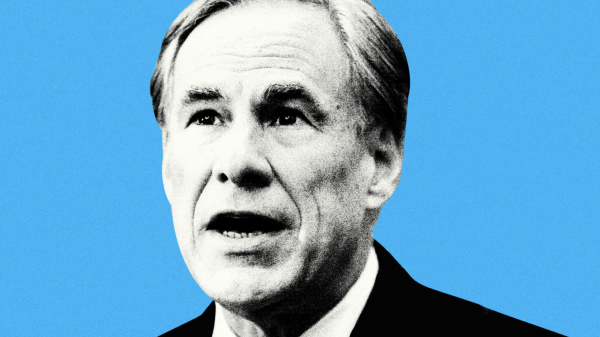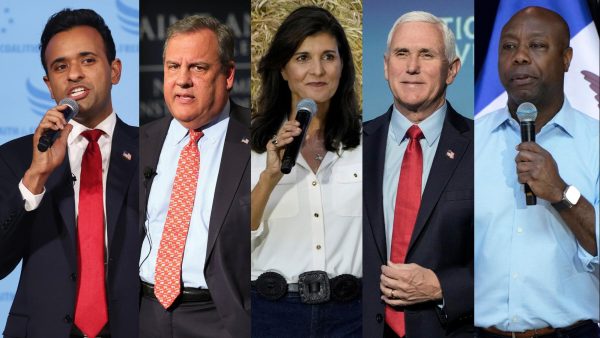Is the U.S. Too Bipartisan?
February 15, 2017
In its current state, the divisive, bipartisan nature of American politics presents a major issue worth consideration. Republicans and Democrats have grown increasingly polarized and less willing to cooperate on lawmaking.
Take, for instance, the 113th Congress, which was in session from 2013 to 2015. According to a National Journal ranking, no member of Senate bridged party lines, meaning that no Democrat was more conservative than a Republican and no Republican was more liberal than a Democrat. As a result of this polarization in Congress, this session had an approval of only 14 percent and passed only 296 bills, far fewer than even the infamous 80th “Do Nothing” Congress [2].
The 113th Congress was also responsible for the 2013 government shutdown. Disagreement between the majority Republican House and the majority Democrat Senate concerning the federal government caused this 16-day affair. Additionally, the government shutdown ended up costing the U.S. an estimated 24 billion dollars while leaving nearly 800,000 federal employees without pay [3]. Such a drastic political mishap evidences the inability of Democrats and Republicans to cooperate.
Stanley Chou ‘19 expresses frustration with the current bipartisan system, remarking that “the Democratic and Republican parties are so large and have so many divisions within them that they cannot represent all the people in their party.” What have emerged from bipartisan polarization are a dissatisfied public and an atmosphere that hinders the effectiveness of the political process.
The lack of cooperation between the dominant political parties has also resulted in public backlash against the two-party system, evident in the extremely low favorability ratings of both Donald Trump and Hillary Clinton in last year’s presidential election. Both candidates were only able to maintain favorability ratings of about 40 percent [1]. Instead, many voters turned to third-party candidates like Gary Johnson and Jill Stein.
According to Sean Wilentz, director of the American Studies program at Princeton University, “[Third parties] are the ones that raise the issues that no one wants to raise and in the process they change the political debate and even policy” [4]. The most prominent example of a third-party candidate influencing national debate would be President Abraham Lincoln, who was elected for his anti-slavery platform and furthered the debate over slavery.
Weighing the ability of third parties to alter national agendas against their limited political clout, Ridge U.S. History teacher Mr. Zande muses, “The idea of third parties is very intriguing to me when I look at the parliamentary systems of countries like England, but the US has had a two-party system for so long that I can’t imagine how we could make third parties more influential.” Even though third-party candidates have the potential to gain popular support and change the national agenda, they are almost never successful enough to win the election, primarily due to the winner-take-all election system. In this system, the candidate with the highest percentage of votes in a state receives all the Electoral votes allotted to that state. A prominent example of the struggle of third parties is that of billionaire Ross Perot, who ran as an independent candidate in 1992. He garnered widespread support and ended up receiving 19 percent of the popular vote, but he did not win any Electoral votes due to the winner-take-all system.
Since third-party candidates very rarely win Electoral votes, they are frequently criticized for detracting from the support of parties with similar platforms. This was particularly evident in the closely contested 2000 election between Republican George W. Bush and Democrat Al Gore. In 2000, Bush won the state of Florida by a mere 537 votes, granting him enough Electoral votes to win the presidential election. However, if a majority of Green Party candidate Ralph Nader’s 97,488 votes had instead gone to Gore, Gore would have won the election instead [5].
Perhaps a solution to the struggle of third-party involvement in presidential elections would be an increase in third-party candidates in local and state legislatures. In these smaller elections, the stakes are far smaller and less impactful. As such, third party candidates could more easily determine the appeal of their platform while minimizing negative ramifications on other like-minded platforms.
[1] http://www.realclearpolitics.com/epolls/other/president/clintontrumpfavorability.html
[2] http://www.politico.com/story/2014/12/congress-numbers-113658
[3] http://abcnews.go.com/Politics/heres-happened-time-government-shut/story?id=26997023
[4] http://www.pbs.org/newshour/updates/politics-july-dec04-third_parties/
[5] http://news.blogs.cnn.com/2010/03/10/how-third-party-candidates-affect-elections/


